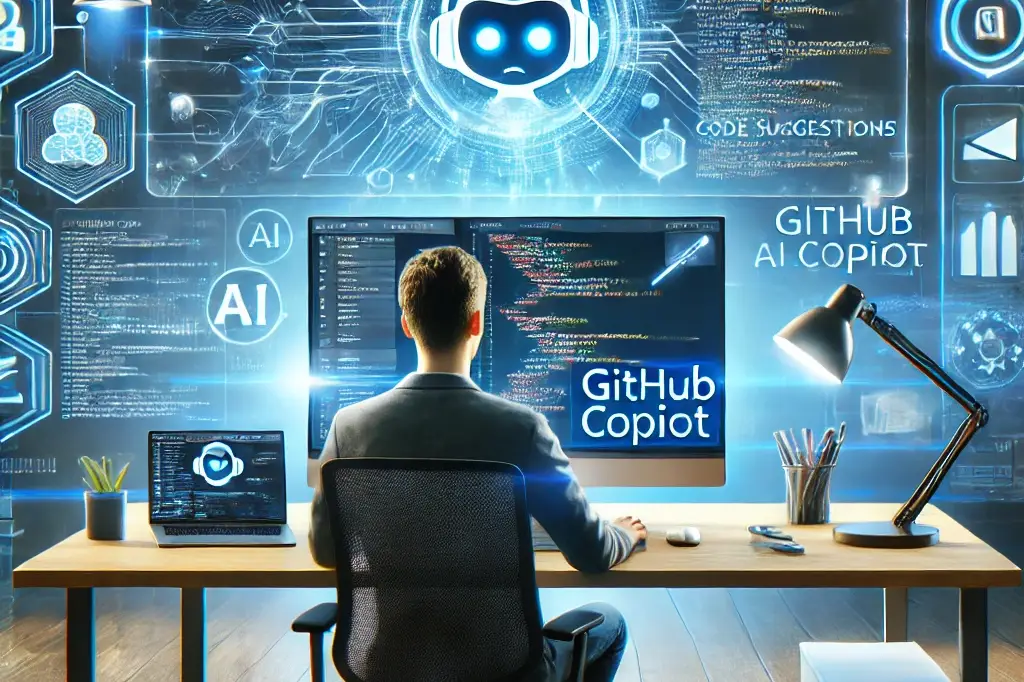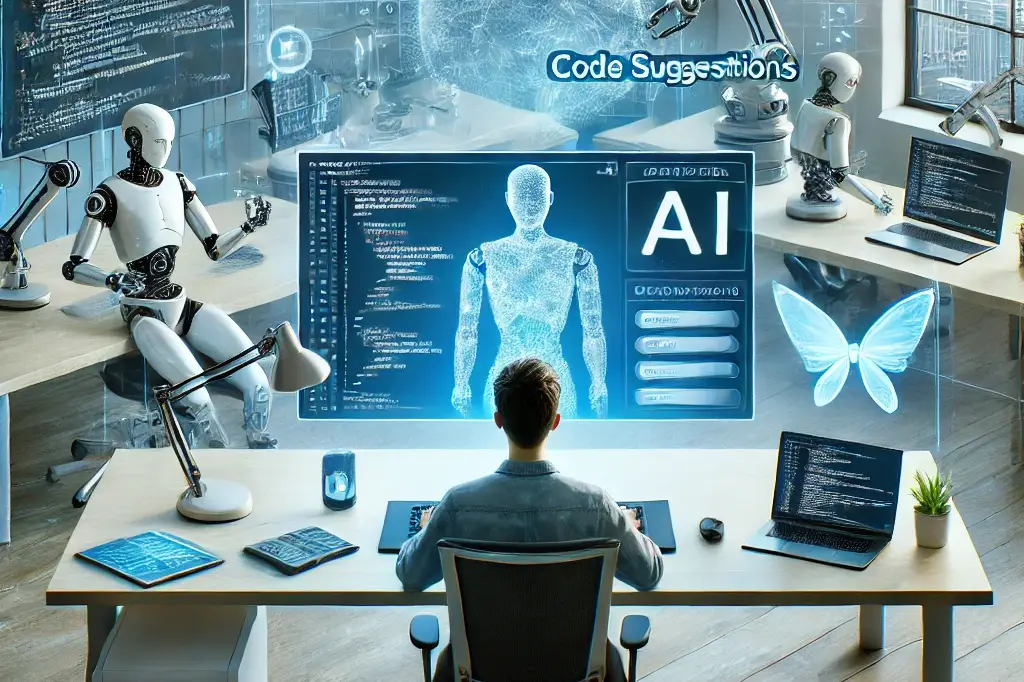Introduction
The landscape of software development is undergoing a rapid transformation. With artificial intelligence (AI) at the helm, developers can now automate coding tasks, debug faster, and streamline workflows like never before. In fact, AI-powered tools have been shown to reduce development time by up to 30% while improving code quality.
Are you a software developer, team lead, or tech enthusiast looking to supercharge your productivity in 2024? This article explores seven groundbreaking AI tools revolutionizing software development, offering actionable insights on how to incorporate them into your daily work.
1. GitHub Copilot: Your AI Coding Partner
Key Insight: GitHub Copilot uses OpenAI’s Codex to suggest real-time code completions, helping developers write clean and efficient code faster.
- Example: A developer working on a Python script can get instant suggestions for functions or complex loops.
- Actionable Tips:
- Use Copilot for repetitive tasks like boilerplate code and standard functions.
- Leverage it to explore unfamiliar programming languages or frameworks.
- Data Point: Over 60% of developers reported that Copilot significantly reduced their coding time.
“GitHub Copilot acts like a brainstorming partner, helping me think through solutions faster.” – Senior Developer, TechCrunch
2. Tabnine: AI-Powered Code Autocompletion
Key Insight: Tabnine provides AI-driven autocompletions tailored to your coding patterns, enabling smarter and faster development workflows.
- Example: Tabnine learns from your personal codebase and team-specific practices, ensuring highly relevant suggestions.
- Actionable Tips:
- Use Tabnine in IDEs like VS Code or IntelliJ to boost coding efficiency.
- Train Tabnine on your private repositories for customized results.
- Mini-Summary: Tabnine is ideal for developers seeking accurate, context-aware suggestions to minimize coding errors.
3. AWS CodeWhisperer: AI Coding Assistant for Cloud Developers
Key Insight: AWS CodeWhisperer offers AI-driven suggestions specifically optimized for cloud development on AWS infrastructure.
- Example: When writing Lambda functions, CodeWhisperer auto-suggests code snippets optimized for performance and cost-efficiency.
- Actionable Tips:
- Use CodeWhisperer to streamline the development of serverless applications.
- Rely on it to comply with AWS security best practices.
- Data Point: Developers using CodeWhisperer have reduced cloud deployment errors by 25%.
4. Snyk: AI for Code Security and Vulnerability Scanning
Key Insight: Snyk leverages AI to detect vulnerabilities in your code, dependencies, and container images, ensuring secure software development.
- Example: A developer scans their JavaScript project and identifies outdated libraries vulnerable to security threats.
- Actionable Tips:
- Integrate Snyk into your CI/CD pipeline for real-time security checks.
- Use Snyk’s automated patch suggestions to fix vulnerabilities faster.
- Mini-Summary: Security-first development is non-negotiable, and Snyk ensures your software remains protected from emerging threats.
5. DeepCode: AI-Powered Code Review
Key Insight: DeepCode uses machine learning to analyze your code and recommend improvements for better performance, readability, and maintainability.
- Example: DeepCode identifies inefficient loops or redundant operations in a Java project and suggests optimized alternatives.
- Actionable Tips:
- Run DeepCode scans regularly to maintain a clean and optimized codebase.
- Use its feedback to teach junior developers best coding practices.
6. Kite: AI for Python Developers
Key Insight: Kite specializes in AI-powered autocompletion for Python developers, making it easier to write concise and error-free code.
- Example: Kite predicts entire function calls and parameter names while you type, reducing repetitive typing.
- Actionable Tips:
- Use Kite to explore Python libraries and APIs more efficiently.
- Enable its “Line-of-Code Completions” for faster coding.
7. Codiga: Smart Code Analysis and Automation
Key Insight: Codiga helps developers automate code reviews, maintain coding standards, and analyze technical debt using AI.
- Example: Codiga flags inconsistencies in your team’s coding style and offers immediate solutions to fix them.
- Actionable Tips:
- Integrate Codiga into your CI/CD pipelines to ensure consistent code quality.
- Use its visual dashboards to track progress and detect problem areas in large projects.
Conclusion
AI tools are reshaping the future of software development, making workflows smarter, faster, and more secure. By adopting tools like GitHub Copilot, Tabnine, and Snyk, developers can:
- Reduce development time.
- Improve code quality.
- Streamline cloud deployments and security processes.
Next Steps: Start experimenting with one AI tool from this list and measure its impact on your workflow. As these technologies evolve, embracing AI-driven development will position you ahead of the competition.
FAQ
Q1: Are AI tools replacing developers?
- A: No. AI tools assist developers by automating repetitive tasks, allowing them to focus on creative and complex problem-solving.
Q2: Are these AI tools beginner-friendly?
- A: Yes, most tools offer user-friendly interfaces and plugins for popular IDEs.
Q3: Which is the best AI tool for Python developers?
- A: Tools like Kite and Tabnine are particularly optimized for Python coding.
Q4: How secure is it to use AI tools in development workflows?
- A: Tools like Snyk and AWS CodeWhisperer prioritize secure development and help maintain coding best practices.



